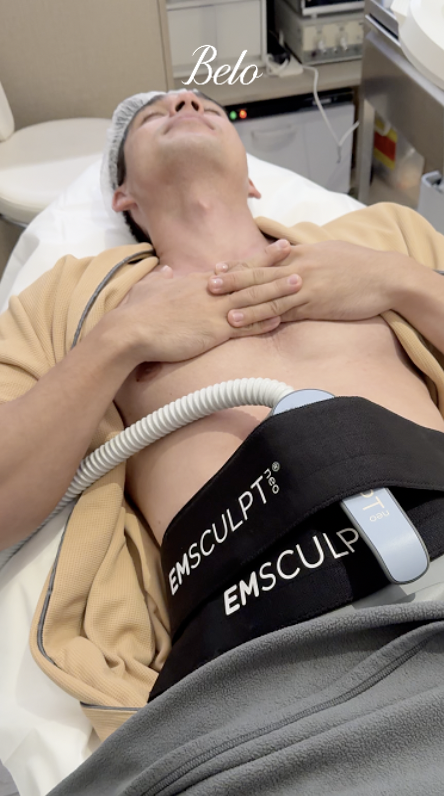Why Aren’t Crunches Effective For Building Abs?
October 24, 2020

Yep, you read that right. If you don’t have the genes for a six-pack, no matter how hard and how often you work out, it’s just not going to change.
Belo baby and action star Ruru Madrid shows off his hard-packed abs
Biology. According to Healthline, each person is “born with a set number of these connective tissue bands”. This is also known as the rectus abdominis muscle. This gives the appearance of multiple packs stacked on top of each other on either side of your abdomen. Your genes determine the “symmetry, length, and size” of these bands. “Of course, what you eat and how you exercise also play large roles in how your abs ultimately look,” explains writer and health professional Corey Whelan.
Gender. In the same Healthline article, Whelan pointed out that “men have around 61 percent more muscle mass than women due to their higher testosterone levels”. Additionally, she mentioned that women require more body fat than men. Why? To produce estrogen, maintain fertility, and to optimize energy levels. “Men require less body fat for optimum health, too. They can more readily lose enough fat to show their toned rectus abdominis muscles underneath.”
In an article for Men’s Health Magazine, Los Angeles-based writer and strength coach Trevor Thieme also pointed out that if you already have defined abdominal muscles, genetics will also determine whether they’re symmetrical or not.
“Odds are your unevenness is genetic, and there’s not a whole lot you can do about it… If those sections aren’t Photoshop-perfect, you aren’t alone. Uneven abs are common even among physique athletes,” Thieme explained.
Thieme mentions other causes of uneven abs, like medical conditions. “Uneven abs can also be caused by certain medical conditions. An example is scoliosis, which results in a sideways curvature of the spine. Athletes that predominantly use one side of their body (e.g., tennis players, golfers, pitchers) occasionally develop a bit of lopsidedness as well.”
Aside from getting the picture-perfect physique, genetics also plays a big role in weight loss in general.
Belo baby and artist Iñigo Pascual flexes off his packed abs
Award-winning journalist Patrick Strudwick wrote about a test called XRPredict for UK news site The Independent. The test was developed by systems biology professor Dr. Jamie Timmons of Loughborough University to determine “the genes responsible for your body’s adaptations to aerobic exercise”. Dr. Timmons did a study in the UK and concluded that “approximately one in six of the general population are “high responders” when it comes to exercise, which means the participants responded well to the health regimen and increased their fitness level by about 25-50 per cent. Meanwhile, one in three are considered “medium responders” (15-25% increase in aerobic fitness), one in three are “medium-low responders” (5-15% increase), and another one in six are “low responders”, which will only see an average of 5% increase in their fitness level despite following a strict health program.
“So far, the only explanation we have for this is that somewhere in their system, between the mouth inhaling air and the oxygen, probably in the periphery of the muscles, they’re maladapting to exercise so that it becomes harder for them to get oxygen to the muscles,” Dr. Timmons tells Strudwick.
This means that your genes will also determine how well your body responds to exercise and diet. This also means that losing weight or having a toned physique may take longer for some people.

Oliver Moeller does the Emsculpt NEO
Thanks to 20,000 crunches in 30 minutes, Belo’s Emsculpt NEO can help you get closer to that six-pack dreams. This treatment uses High-Intensity Focused Electromagnetic (HIFEM) technology to generate muscle movement, is physically unachievable on our own. No pain, no downtime!
Although some individuals may see noticeable results after a single session, most doctors recommend a series of treatments for optimal results. Typically, a minimum of four sessions over two weeks is suggested, depending on the patient’s goals and response to the treatment.

With the right nutrition, exercise and some Emsculpt NEO sessions, you’ll be able to achieve your six pack in no time!
Our Belo doctors can best recommend treatments or a skincare regimen for you. We have clinics located around Metro Manila, Pampanga, Cebu and Davao! Give us a call at 8819-BELO (2356) or book your appointment here.
Please note that prices may change without prior notice and the final price will be based on the doctor’s quotation upon consultation.
Most Popular
Belo Beautiful Stories: Coach Hazel Benipayo and the Rhinoplasty Glow-Up That Changed Her Life